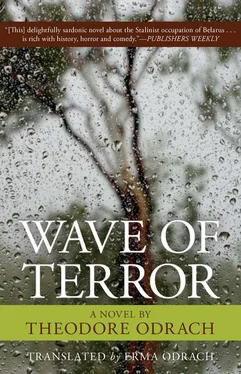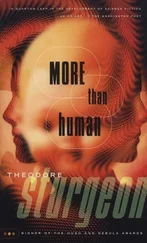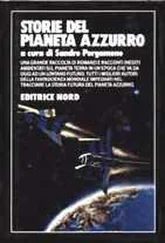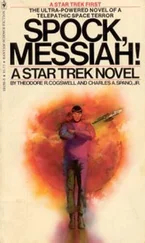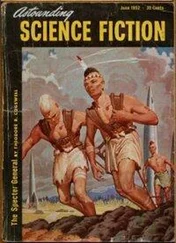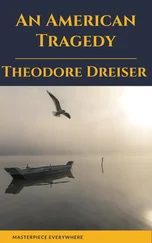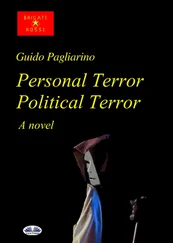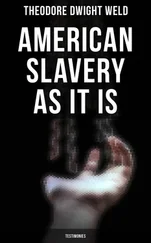Haya’s eyes bulged and she shot back hotly, “If I’m responsible for my class, then why did our good headmaster Kulik interfere with my instruction and appoint Ohrimko Suchok class chief? How is it, I ask, that the most unruly pupil in the entire school suddenly attains the most honorable and entrusted position? What have you to say about that?”
Kulik had been standing near the door. Haya had just launched a most dangerous assault against him and he knew he had to move quickly to defend himself. He hastily stepped before the officials.
“Allow me to straighten this matter out, comrades. In the first place, I’m not a subversive of any kind or an anti-Semite, for that matter. The very notion is absurd and repulsive to me. As you can see for yourselves, everything in the school is run and has been run in strict conformity with Soviet policy. Haya Sruleyevna is at odds with me for making the worst pupil in the entire school chief of his class. Perhaps I acted in haste, I admit, but since the boy responded to no measure of discipline, I decided to run a sort of experiment — one of positive reinforcement, so to speak, one that would encourage him to attain a higher level of importance and self-esteem. And if I may say so myself, it’s been a great success.” Then turning to Haya, looking directly at her, “Tell me, honestly, Comrade Haya, after the incident with the crosses, did Ohrimko’s behavior worsen or improve? Why, wasn’t it just yesterday that you came into my office with only good things to say about him?”
Haya turned white and stammered. “I … uh … I …”
Yeliseyenko tapped his foot impatiently. “Well? We’re waiting for an answer. What have you got to say to this?”
Glancing helplessly and frantically about the room, looking pleadingly at the officials, she broke down completely. “Oh, it’s true, the problem is not Ohrimko, at least not any more. The real truth is it’s horrible here and I hate it. Please, comrades, I beg you, get me out of here, transfer me to another school, one closer to Moscow. I can’t bear it anymore. Ohrimko did improve, in fact he’s even become a good student and a good influence on the others, but still, it’s not enough. I implore you, send me to a Russian school. I feel so cooped up here. No one, including the villagers, understands a word I say and I don’t understand them.”
Yeliseyenko patted her gently on the shoulder. “All right, Haya, we’ll take your concerns into account when we investigate this matter further. But you must collect yourself, please. You’ll be hearing from us shortly.” Then he looked briefly at his watch, and signaled to his colleagues. “Now we must be off to the next class.”
The men hastily made their way down the corridor to the grade three classroom, where Ivashkevich was bent over his desk, leafing through a pile of papers.
“Comrade Ivashkevich?” Yeliseyenko poked his head through the door. “Excuse the interruption. We’re running an investigation of the school today and would appreciate a few minutes of your time. May we?”
Looking up, somewhat startled, Ivashkevich took off his spectacles and shoved his papers aside. “By all means, come in, please.”
Yeliseyenko wasted no time in getting down to business. “We’d like to ask you a few questions regarding the school. How long have you been teaching here?”
“About two months.”
“And how do you feel about the school? In other words, in your opinion is it being run efficiently and effectively?”
Ivashkevich hesitated. “Things aren’t bad. However … how shall I put it … uh …”
Sobakin snapped, “Out with it, we don’t have all day.”
“Well,” Ivashkevich said, “to put it simply, I find teaching here rather difficult. The people in Hlaby are not Belorussian as I was led to believe. The children can’t speak a word of it and I have to start from scratch — quite literally from the alphabet. It’s created a big headache for me. From what I understood, when the regime assigned me here, I would be among fellow Belorussians, but this is not the case at all. Everyone here speaks Ukrainian.”
Visibly agitated, Yeliseyenko pretended to ignore what he had just heard. He started up again, this time about Kulik. “And what about the headmaster? Do you find him competent and reliable?”
“Oh, yes, quite, and I might add, the charges of subversion and anti-Semitism building up against him are complete nonsense. Not only is Comrade Kulik a good headmaster but he’s an upstanding citizen. Why Haya Fifkina has built a case against him, I don’t know. In my opinion, she’s created a mountain out of a molehill. Allow me to speak candidly — our headmaster did a wonderful job in turning that young Ohrimko around. We were all convinced he was hopeless, but Comrade Kulik proved us all wrong and I applaud his efforts. Kulik is setting a fine example for the children and is encouraging them not only to work hard but to take their schooling seriously.”
Yeliseyenko glowered. He said abruptly, “Yes, in any case, I’m sure before long we’ll get to the bottom of this whole mess.” Then after taking a slip of paper from his coat pocket and reading it, he cleared his throat and brought up another matter. “Hrisko Suchok and Cornelius Kovzalo — I would like to speak to these two men right away. I believe they live here in Hlaby. Would you be so kind as to bring them to the office immediately?”
Eagerly, Ivashkevich rose from his seat, and grabbing his overcoat from the closet, set off for the village. Barely ten minutes passed before he returned with the two men. The first to come through the door was Cornelius, followed by Hrisko Suchok.
Yeliseyenko called out, “Grigory Osipovich Suchok.”
“Uh, that’s me, comrade,” Suchok pulled off his big sheepskin hat, and crumpling it between his hands, bowed obsequiously.
“Ohrimko is your son, is that correct?”
Suchok flushed a deep crimson. This was the very question he wanted to avoid, and at all costs. He started apologetically, “Yes, he’s mine. He’s a troublemaker, no doubt, and I’m the first to admit it. But I’ll have you know, I’ve already taken serious steps to set him straight. I thrashed him until he was black and blue all over and couldn’t walk for a week.”
Yeliseyenko seemed unimpressed. “Yes, well, yes.” Then looking him in the eye, “Tell me, did the headmaster ever call you to the school regarding your son’s behavior? And if so, did he discuss with you the incidents involving Haya Fifkina?”
“Yes, as a matter of fact he did.” Suchok loosened the top button of his overcoat. He felt extremely nervous standing before such important government officials. “Exactly one month ago, on a Thursday I believe it was, I came to see the headmaster regarding my boy. I begged him to teach him a lesson once and for all — to stretch him out on a bench and give him a good whipping or to strap his knuckles until they cracked. But he refused. He said he came to our village to teach the children and not to beat them. Uh, if you don’t mind my saying so, I think our headmaster is too soft-hearted. I think he lacks a certain toughness, which I believe is necessary for this job. As you can very well see for yourself, even though I’m a simple man, I was forced to take matters into my own hands. And now, thanks to my firm stand, my Ohrimko’s finally learned his lesson.”
Yeliseyenko looked sternly at Suchok. “About your son’s assaults on Comrade Haya. I find this sort of behavior extremely alarming and it sets a dangerous precedent. I’m suggesting it was you who riled him up at home, and that it was you and not the headmaster who encouraged him to be anti-Semitic. A boy of seven has to get his ideas from somewhere. It’s obvious to me Ohrimko got them from you.”
Читать дальше
